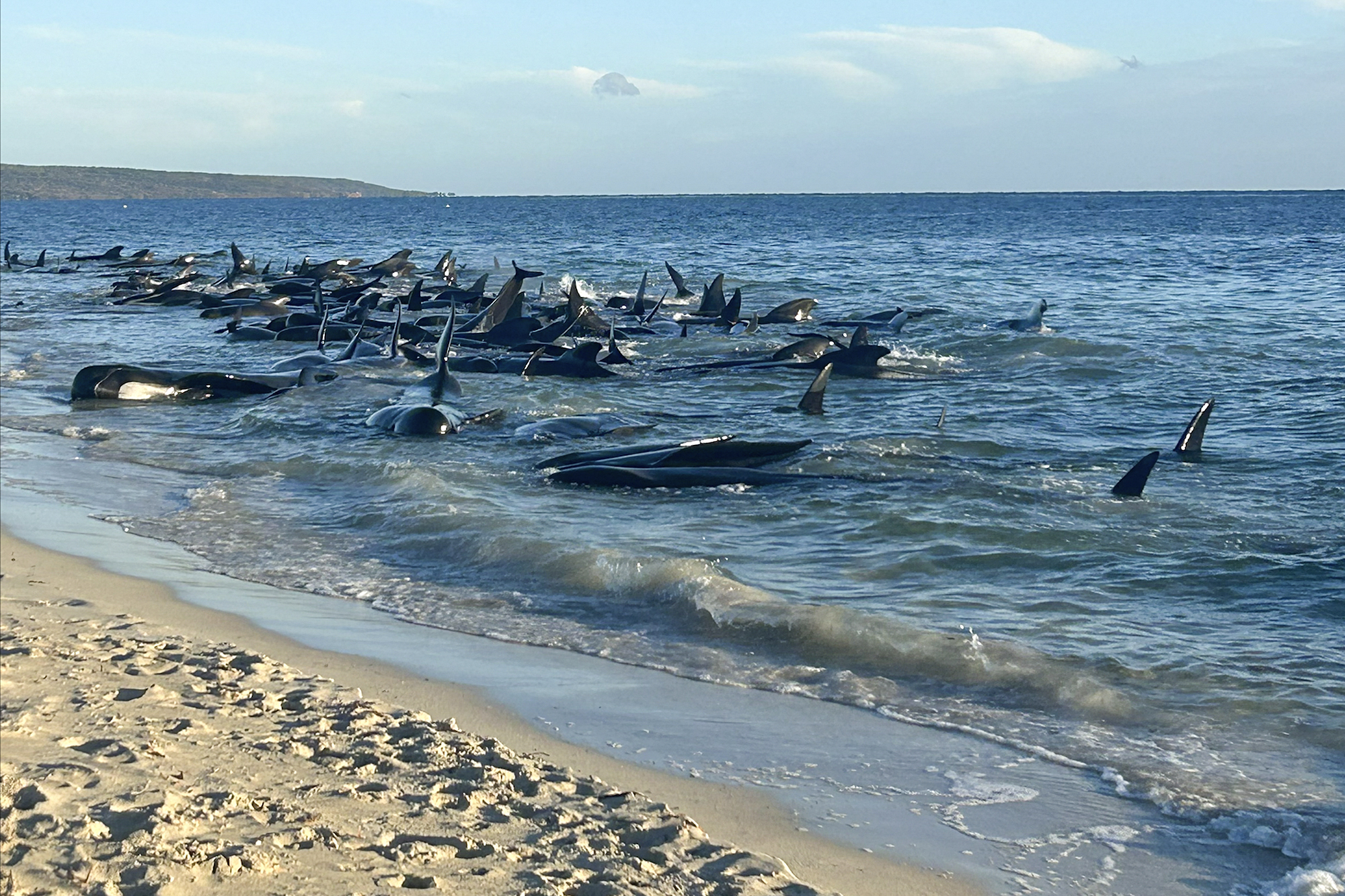The great sardine cleanup in Redondo Beach was about half done Wednesday, with an estimated 35 tons of dead fish scooped from the surface of King Harbor.
"We've gotten 95 percent of them off the surface," said Redondo Beach police Sgt. Phil Keenan.
A gigantic school of sardines got trapped in the harbor late Monday or early Tuesday and depleted the confined waters of all the available oxygen, before going belly-up about midmorning Tuesday. Some observers estimated the total number of sardines to reach as high as one billion.
The dead fish will be taken to a composting facility for organic re-use, according to the city. Keenan said about 60 volunteers and 70 city employees were scooping up fish Wednesday.
"It's going to be a five- or six-day job, and this is Day Two,'' Keenan said.
Keenan said the city was experimenting with a vacuum truck normally used to clean muck out of sewer lines to get the fish in the shallow water near the marina walls. The city is also evaluating another "soft vacuum" method for sucking up fish from the bottom, but officials don't want to use dredging equipment because "that would disturb the bottom."
Redondo Beach mayor Mike Gin estimated the cleanup to cost about $100,000.
U.S. & World
The smell around the harbor Wednesday was "fishy, but not horrific," Keenan said. "In the next couple of days, it'll be horrific."
Citing USC biologists, Redondo Beach city officials say tests on the water showed no signs of "pollution or toxins as the cause of the die off."
Biologists said "the water in the harbor experienced oxygen depravation." Or as Redondo Beach police Sgt. Phil Keenan put it Tuesday, "It's like putting too many fish in a small aquarium."
An official report on the incident will be completed within the next couple of days, according to city officials.
Sardines move in gigantic schools, sometimes called "bait balls,'' and Monday's high winds, as some experts speculated, may have driven them into the harbor.
Fish and Game spokesman Andrew Hughan said Tuesday that officials believe the fish "got lost" in rough seas and made a wrong turn at the breakwater, ending up in the harbor, where they used up all the available oxygen.
Larry Derr, head of bait operations at King Harbor, told the Los Angeles Times that sea lions and seagulls have been feasting.
"They are sitting there fat and happy," Derr said. "They don’t know what to do with themselves; there are thousands of them."



